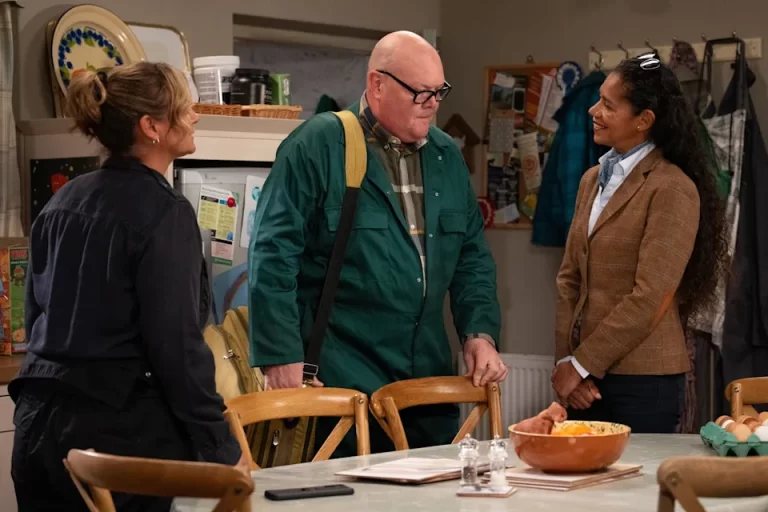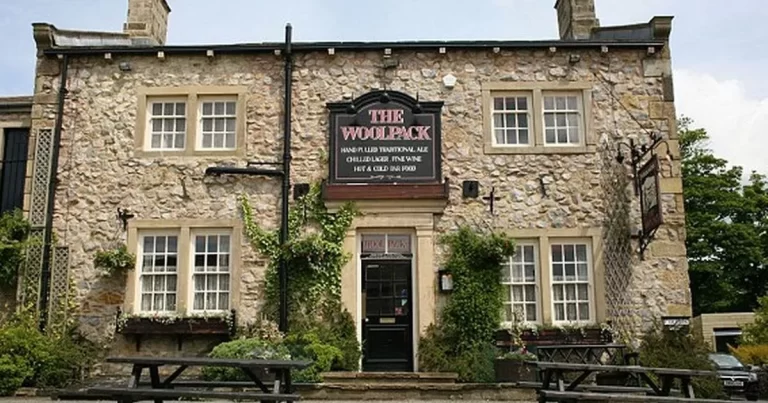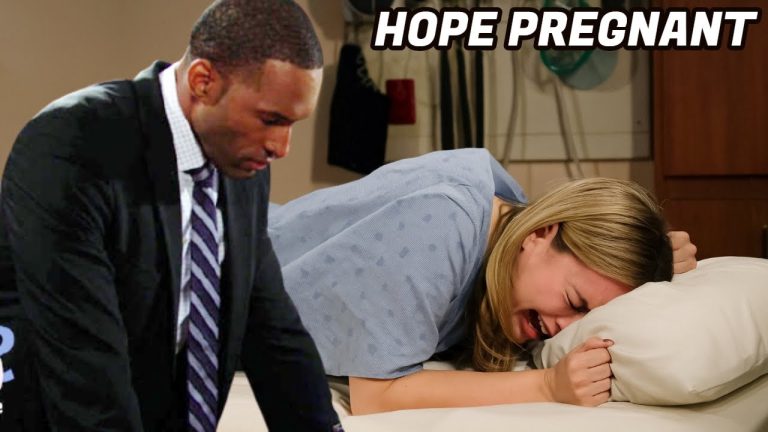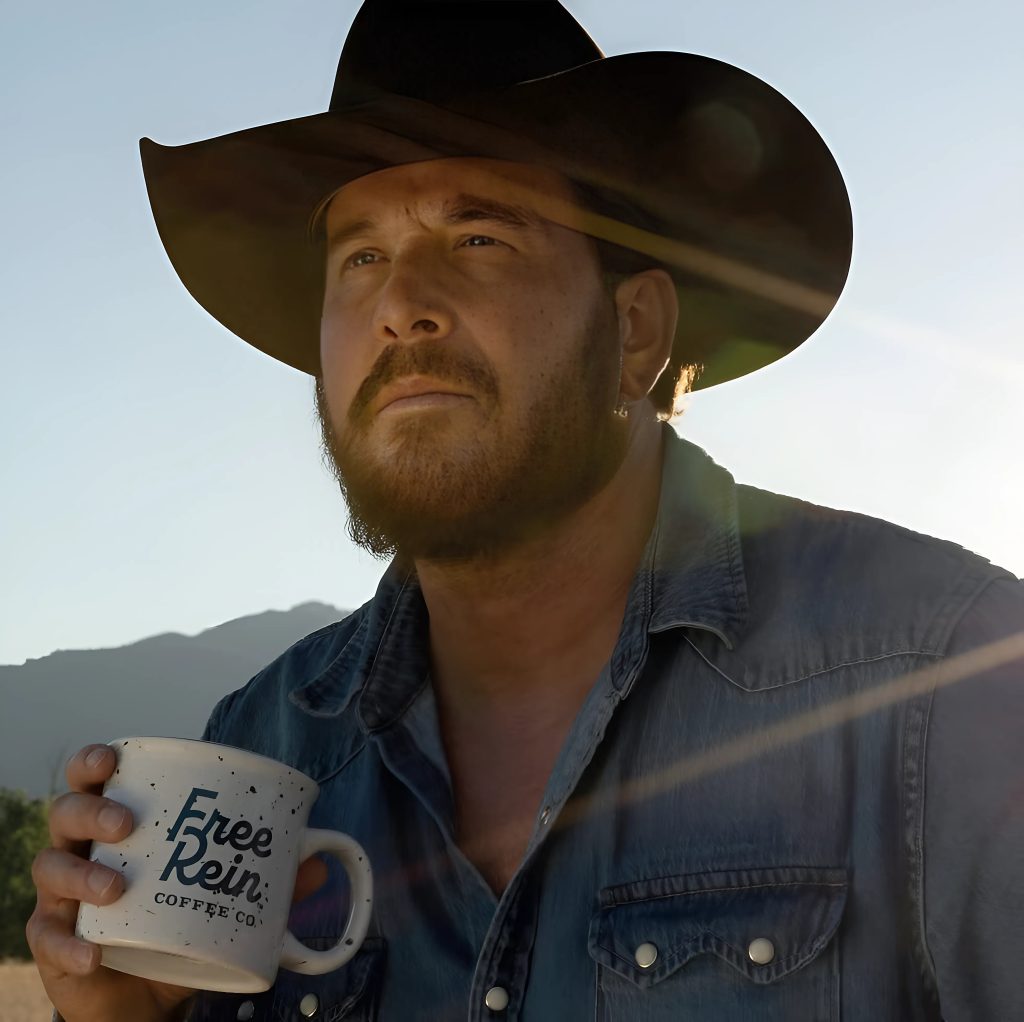
From Cowboy to Coffee Mogul
To fans of Yellowstone, Cole Hauser is Rip Wheeler — the ranch’s muscle, John Dutton’s most loyal enforcer, and one-half of the show’s most intense romance. With his beard, black hat, and thousand-yard stare, Hauser has become one of the most iconic characters in the neo-Western genre.
Off-screen, Hauser projected a similar image: rugged, business-savvy, and fiercely independent. So when he launched his own coffee company, Free Rein Coffee, in 2023, it seemed like a natural extension of his cowboy brand. But what started as an entrepreneurial side hustle quickly turned into an unexpected legal shootout — not with a corporate giant, but with Yellowstone’s own creator, Taylor Sheridan.
What followed was a lawsuit that blurred the lines between art, commerce, and loyalty — and raised questions about intellectual property, creative ownership, and the high-stakes business of being a TV cowboy.
Chapter 1: The Rise of Free Rein Coffee
In September 2023, Cole Hauser announced the launch of Free Rein Coffee Company, a premium coffee brand designed to celebrate “the hardworking, get-it-done spirit of the American West.” With rugged visuals, a slick website, and blends named things like “Heavy Spur” and “American Dirt,” the company leaned heavily into Western aesthetics.
Hauser didn’t just lend his name — he co-founded the company, promoted it on social media, and positioned it as part of a personal lifestyle brand. Fans loved it. The marketing was spot-on. Orders rolled in.
But not everyone was pleased.
Just weeks after launch, legal papers arrived.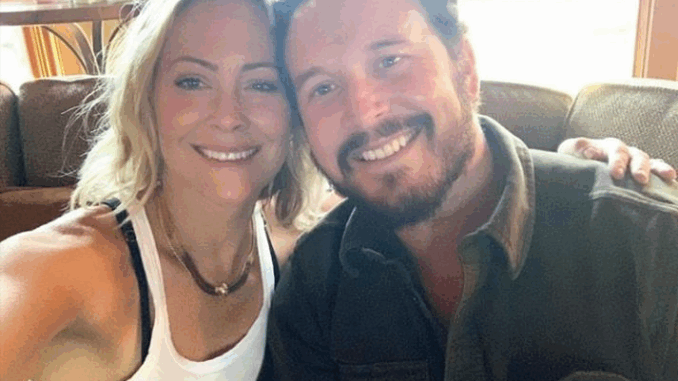
Chapter 2: Taylor Sheridan’s Bosque Ranch Fires Back
Taylor Sheridan — the man behind Yellowstone, 1883, and 1923 — is more than a screenwriter. He’s a cowboy in real life, a ranch owner, and a businessman. His brand, Bosque Ranch, includes horses, events, media partnerships, and — crucially — its own coffee line.
Sheridan filed a lawsuit against Hauser in late 2023, accusing Free Rein Coffee of trademark infringement, unfair competition, and false designation of origin. The complaint argued that Free Rein’s branding — especially its FR logo — was too similar to Bosque Ranch’s BR logo, potentially misleading consumers.
Sheridan’s legal team also accused Free Rein of deliberately marketing its products in ways that implied an association with Yellowstone or Bosque Ranch — without permission.
Chapter 3: Branding, Identity, and the Letter War
At the heart of the lawsuit was a matter of design: Free Rein’s logo, featuring a stylized “FR” with overlapping letters, bore visual similarities to Bosque Ranch’s own minimalist monogram. Sheridan’s lawyers argued that the Western font, color scheme, and even the coffee bag aesthetics could lead customers to think the two companies were related.
Hauser’s team fired back. They insisted the brands were distinct, both in mission and in visual identity. Free Rein, they argued, stood on its own — a tribute to Hauser’s values, not Sheridan’s.
But beneath the legal jargon, the subtext was clear: this wasn’t just about logos. It was about ownership of image. And Sheridan, who had built the Yellowstone universe from the ground up, wasn’t ready to see his creative territory borrowed — even by his own star.
Chapter 4: Loyalty on Trial
For Yellowstone fans, the lawsuit was shocking. On-screen, Rip Wheeler would never betray John Dutton. Off-screen, it seemed like Cole Hauser and Taylor Sheridan had a strong working relationship.
But the lawsuit pulled back the curtain on deeper tensions. Industry insiders noted that Sheridan, known for his tight grip on the Yellowstone brand, had grown increasingly protective of anything that resembled his vision. He reportedly felt blindsided by Hauser’s coffee launch — not because he opposed the idea, but because he wasn’t consulted or included.
Hauser, on the other hand, viewed Free Rein as a personal project — not a Yellowstone product. But that distinction, legally and emotionally, wasn’t as clear-cut.
Behind the scenes, the lawsuit reportedly chilled the atmosphere on set. Co-stars and crew members found themselves caught in an awkward position, unsure how to navigate the sudden rift between two of the show’s biggest figures.
Chapter 5: Public Reaction and Fan Response
As news of the lawsuit spread, fans weighed in — and the reaction was divided.
Some supported Hauser, praising him for creating something of his own. They viewed the lawsuit as heavy-handed, accusing Sheridan of trying to control everything associated with the show.
Others sided with Sheridan, arguing that Hauser’s coffee brand leaned too heavily into Yellowstone imagery. They believed it was wrong for him to profit off the show’s aesthetic without the showrunner’s blessing.
Still others expressed disappointment that the drama had spilled into the real world. Yellowstone, after all, was about loyalty, family, and honor — and this legal feud seemed to betray all three.
Chapter 6: The Bigger Picture — Celebrity Brands in Conflict
The Cole Hauser coffee lawsuit is part of a larger trend in Hollywood: actors leveraging their fame to launch personal brands, only to run afoul of the studios or creators that helped make them famous.
From Ryan Reynolds’ Aviation Gin to Jessica Alba’s Honest Company, celebrity-driven business ventures have become a multi-billion dollar industry. But when those ventures overlap with creative franchises, the line between personal and professional gets messy.
Hauser’s coffee brand isn’t just selling beans — it’s selling a lifestyle, one shaped in part by his portrayal of Rip Wheeler. Sheridan’s legal team argued that Hauser was, essentially, commercializing a character without permission.
In a sense, the lawsuit asked a deeper question: Who owns the cowboy image — the actor who plays it, or the writer who created it?
Chapter 7: Fallout and Future Implications
As of mid-2024, the legal battle between Hauser and Sheridan is ongoing, with both parties filing responses and preparing for further action. Sources say that settlement talks have occurred behind closed doors, but no agreement has been publicly announced.
The tension has reportedly not affected Hauser’s contract for the final episodes of Yellowstone, though insiders speculate that future collaborations with Sheridan — such as possible spinoffs — may now be unlikely.
Meanwhile, Free Rein Coffee continues to operate, gaining popularity through Hauser’s social media channels and cowboy-loving fanbase. Bosque Ranch, too, has expanded its offerings, including a podcast, horse clinics, and a growing merchandise line.
The Western war of branding is far from over.
Conclusion: When Cowboys Collide
The lawsuit between Cole Hauser and Taylor Sheridan reveals the complicated intersection of art and commerce in modern entertainment. What began as a passion project for Hauser turned into a full-blown intellectual property dispute — and a personal clash between two powerful creative figures.
In the world of Yellowstone, loyalty is everything. But in the real world, contracts, trademarks, and branding rights often trump personal codes of honor. As Sheridan builds his empire and Hauser rides his own entrepreneurial path, the bitter taste left by their feud may linger — long after the coffee has cooled.
